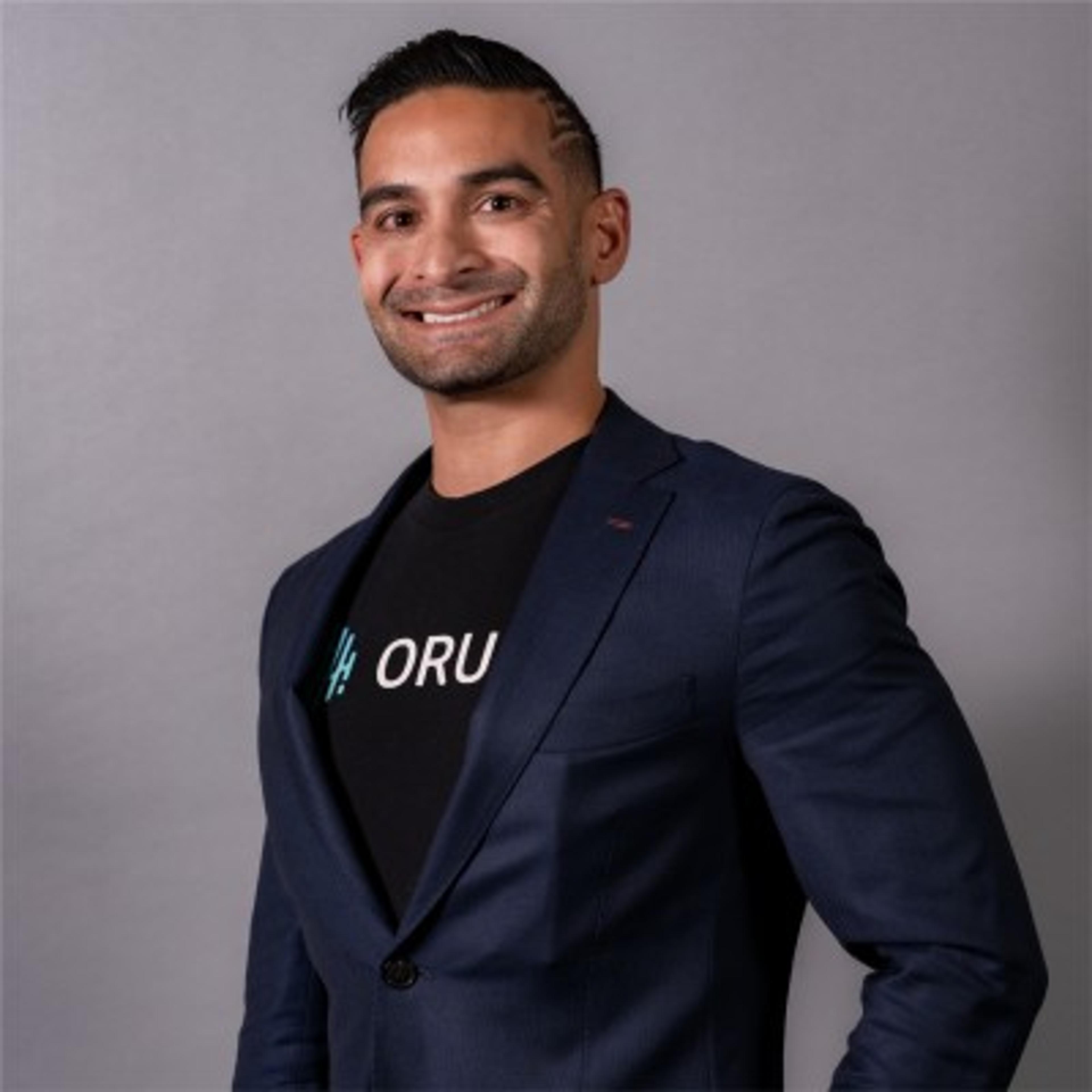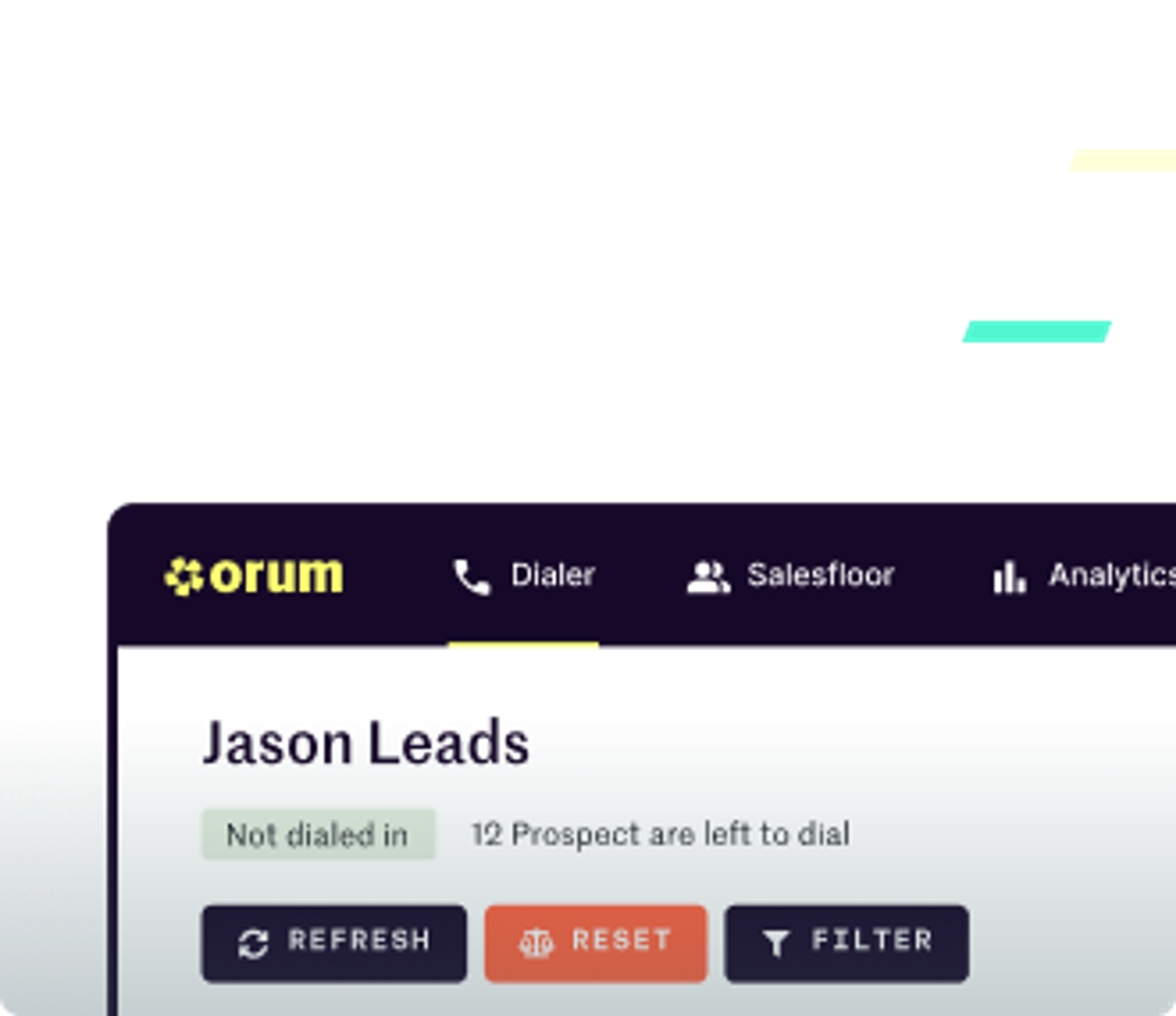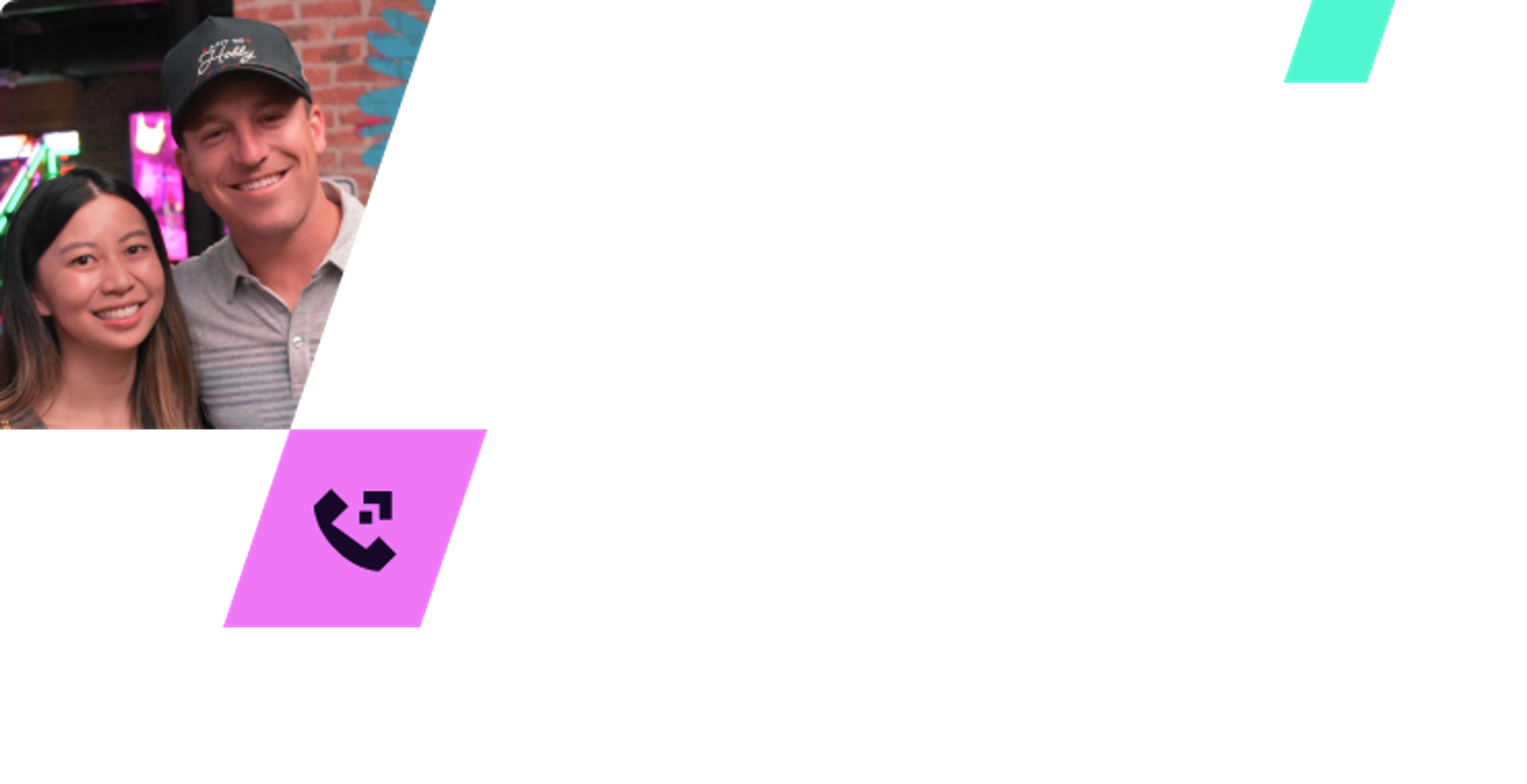Winning the SDR Interview: Top 5 Principles


In the past year here at Orum, I interviewed 250+ SDR candidates to hire ten. Two came from our own network. That’s a ratio of almost 30:1 for interviews to positions filled. Was I picky? You bet — we’re building the best SDR organization on this planet.
Every candidate I interviewed was solid on paper. Those that progressed to the final stages, however, set themselves apart by nailing five principles.
I was honored to collaborate with Brooke Bachesta, Revenue Enablement Manager at Outreach.io, to reveal how candidates can ace the SDR interview (and how managers can identify their one-in-thirty star candidate.) Whether you're starting a sales career or you’re an SDR leader looking to step up your interview game, this article is for you.
1. Setting Yourself Apart
How does an SDR stand out from the 30 candidates they’re competing against for this role?
Here are some example questions hiring managers can ask to uncover the answer:
The brevity test
"Give me your life story in three minutes."
The three-minute timeline tests brevity, a core trait for an SDR speaking to prospects. Can they hit the critical points of their story succinctly? Top-notch SDRs have a deep respect for both the prospect's time and their own.
The hero story
"Give me an example of a time where you did something that was really hard or challenging, but in the end you came out on top as #1."
The best SDRs often challenge themselves to tackle the tough things in life. What's their story? Are they a hero or a victim?
This also gives the hiring manager a chance to get to know them. As our CEO Jason Dorfman wrote in his blog post: “Without exception, every great SDR I have hired has had a fantastic answer to this question.”
The failure bounce-back
“Tell me about a time you failed.”
This question can come in many forms. Can the candidate get themselves out of a bad situation and make the most of it?
Brooke shared a great example from her experience interviewing at a company in the travel vertical. The interviewer asked: “Tell me about your most cumbersome travel experience.”
If the candidate were to answer with "My worst trip was to [location] and then they lost my bags and the whole trip was ruined," they aren’t displaying much grit or resilience.
But if they come back with a story about turning it around — "Well, they lost our bags and our flight was delayed, then we were dropped off at the wrong hotel and had to use translation apps to get a cab driver to take us to the correct destination, and after that adventure we ended up exploring an entirely different part of the city and we had a great time (and now a great story!)" — it’s clear they can deal with unfortunate circumstances, think on their feet, find the positives, and move on. All important for success in a sales job.
Brooke’s pro tip for SDR candidates:
SDR candidates should know how to tell a STAR story. Interviews are usually only 30-45 minutes long. That’s not that much time to get to know each other!
Your answers should provide color, but be brief. In the above example, your life story shouldn’t include details like “I was born in [year] and went to [preschool] and then [middle school] where I excelled in [talent].” Sorry, friend — no one cares. Put yourself in the interviewer’s shoes and consider: What’s the intent of this question? Sure, part of it is getting to know you on a personal level, but this tests your ability to stay on track. Tell a short story of why you ended up in this interview seat and show your personality!
2. Preparation
The number-one reason I disqualify candidates is a lack of preparation. SDRs are constantly researching accounts and prospects to align their offering with perceived pain points. If someone can't prepare for the product they plan to sell, that's a red flag.
Here are the questions I ask, in the order I ask them:
"Pretend I'm a prospect. Describe our product to me."
I'm not looking for perfection, but their answer should show off an ability to research, digest, and deliver a clear & persuasive message.
Brooke takes a different approach. Because few candidates are familiar with the type of product they’d be selling, she asks them to prepare using a real cold call script and email writing best practices.
They're given a task ahead of time: write a mock email to [VP of Department] using these tenets. This task is graded by the hiring manager. The candidates also do a mock cold call with the manager using a real script, then are assessed, not on whether they ace the call but on how they responded to coaching. Did they get defensive or were they open? Did they make an attempt (even a poor one) to implement the feedback on their next try?
"What are some questions you'd ask to qualify or disqualify a prospect?"
Questions are the name of the game — the better the question, the better the answer. The candidate’s answers will indicate their level of understanding of the market's pain points and the solution they’re providing.
In Brooke’s experience, this question works better for either tenured positions (like Enterprise SDR) or closing reps. Focusing on behavioral questions over company specifics is a tactic some interviewers will use.
“What are some value statements you think would resonate with our target customer?”
With this question, I’m looking for the candidate to deliver heavy-hitting value statements based on the product’s benefits.
For example, at Orum, a poor answer would be that "the product increases efficiency" or "saves prospects time."
Good answers would be more specific to our product:
"Allows 5x as many conversations" or "saves 90% of the time wasted listening to the phone ring."
A great answer would combine data and emotionally charged language:
"We enable reps to have more conversations in a day than a peer (not using Orum) will have in an entire week. They will have five times as many conversations with targeted contacts as they are having now, leading to sales productivity gains of 50–100%." Hits differently, right?
“What do you think are the most common objections? How would you handle them?
To date, only a handful of SDRs I've interviewed nailed this. Anticipating objections shows they’ve considered the challenges in selling the service. Providing answers on how to overcome them is one of the best ways to show preparation and critical thinking.
Bonus: “What about our values most resonates with you?”
There are two outcomes to this question: either the candidate responds immediately and passionately, or there’s a pause while they frantically navigate to the company page. Only the former gets moved along.
Brooke’s pro tip for SDR candidates:
Do some research and learn the core values for the company you’re interviewing at. Nearly every company has them, and they’re usually posted right on the hiring page. These values are usually things like “we’ve got your back,” “be one with the customer,” “be honest,” and so on.
Once you find them, map out specific examples in your recent life where you’ve demonstrated those values and prepare to share. For example, if a company’s value is “one with the customer,” the question asked may be something like: “Tell me about a time when you went above and beyond to ensure that a partner or customer had a positive experience.”
Beyond asking “can this person do the job,” the hiring manager wants to know: “Does this person complement our culture by upholding our core values?” Keep in mind that this question is very different from “Would I grab a beer with this person after work?” or “Does this person match the 'vibe' of the team?” Culture is not just about likability — it’s about assessing candidates on their own core values and whether they complement yours.
3. Nailing "Why"
As Simon Sinek argues in his book "Start with Why," people are inspired by a sense of purpose. It should come first when communicating, even before "how" and "what."
There are over 50,000 SDR jobs across every industry/vertical. Why does the candidate want to join the team, and this role specifically?
Sales development is really tough. Why this role?
An SDR might make hundreds of calls per week just to speak with a handful of people (unless they have Orum!). They spend hours each day researching accounts and sequencing prospects, writing custom emails, and facing objections every step of the way. What’s going to keep them motivated?
Why do you want to sell this service/product?
Every candidate should have a personal reason for wanting to sell the service. If they don’t, it’s best to disqualify them for their own sake. Successful SDRs rely on internal motivators (such as autonomy, mastery, and purpose) over external motivators (like money and status).
4. Open-Ended vs Close-Ended Questions
What sort of questions does the SDR candidate ask when the interviewer passes the mic?
Not asking any questions is often grounds for disqualification. They’re either not serious, underestimate the role, or both.
Brooke adds that asking highly generic questions (“What sets your bottom reps apart from your top reps?”) or close-ended “yes or no” questions aren’t likely to impress the interviewer, either. A better question would be more specific, running along the lines of: “How many reps hit their quota? What's participation look like? Why do you think that is?”
Open-ended questions, on the other hand, are a strong signal the candidate will hold quality conversations. In order to maintain a prospect's attention and deliver value, an SDR needs to maintain control of the conversation. Every time they’re posed a question, they should return with an answer and regain conversational control with a question of their own.
5. Closing the Interview and Follow-Up
First off, let's start with what not to say.
"Can you tell me what the next step is?” isn’t a good question. Can you imagine an AE saying that to a customer? The interview is the candidate’s chance to offer a glimpse of how they’ll operate as an SDR. Details like this should reflect that.
Some better questions to close with:
- “Based on our discussion, how do I compare to current SDRs on the team?”
- “I’d welcome an opportunity to join the team. I’m confident I’ll contribute immediately. In the meantime, could I spend a few minutes connecting with your top SDR?”
- “I really enjoyed learning more about the opportunity to work at [COMPANY NAME]! Based on what you learned about me, are there any reservations you have moving me to the next step?"
Brooke suggests a power-move question — “Any concerns about my candidacy?” — with a caveat: if the candidate asks for feedback, they should actually take it. This shows that they have a learning mentality and a motivation to grow.
After asking their last questions, they’ll want to close the loop and thank everyone involved.
And when all is said and done, a thoughtful follow-up email is essential. Finally, a follow-up email is essential.
Brooke’s pro tip for SDR candidates:
Be sure to send a thoughtful follow-up. It doesn’t need to be a novel. A quick one-liner from a mobile email app will do. It should include one memorable topic that was discussed and the words “thank you.” That’s it. No one needs to read your five-paragraph essay on why you want the job — that should have come through in the interview.
Use the thank-you note as an opportunity to stand out amongst other reps and demonstrate the ability to manage follow-up. Here’s an example:
"Hey [interviewer name], thanks for your time today. I really enjoyed your perspective on [topic you discussed]. Hope to chat with you again soon, have a great evening!
[Name]"
Ready to crush your interview?
Have you been thinking about getting into the sales game? We’re hiring SDRs — check out the role and kick off your career here at Orum!
Growing your SDR team?
Finding talent is hard, and growing your sales development team requires you to balance different factors for its success. Our Math of Sales Calculator does the math for you.
Plug in proprietary sales data (like ARR goals, ramp time, and meeting-to-close ratio) and get an accurate estimate of how many SDRs and SDR managers you’ll need to hire.





